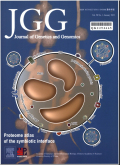Lack of evolutionary convergence in multiple primary lung cancer suggests insufficient specificity of personalized therapy
摘要Multiple primary lung cancer(MPLC)is an increasingly prevalent subtype of lung cancer.According to recent genomic studies,the different lesions of a single MPLC patient exhibit functional similarities that may reflect evolutionary convergence.We perform whole-exome sequencing for a unique cohort of MPLC patients with multiple samples from each lesion found.Using our own and other relevant public data,evolutionary tree reconstruction reveals that cancer driver gene mutations occurred at the early trunk,indicating evolutionary contingency rather than adaptive convergence.Additionally,tumors from the same MPLC patient are as genetically diverse as those from different patients,while within-tumor genetic het-erogeneity is significantly lower.Furthermore,the aberrant molecular functions enriched in mutated genes for a sample show a strong overlap with other samples from the same tumor,but not with samples from other tumors or other patients.Overall,there is no evidence of adaptive convergence during the evolution of MPLC.Most importantly,the similar between-tumor diversity and between-patient diversity suggest that personalized therapies may not adequately account for the genetic diversity among different tumors in an MPLC patient.To fully exploit the strategic value of precision medicine,targeted therapies should be designed and delivered on a per-lesion basis.
更多相关知识
- 浏览9
- 被引0
- 下载0


相似文献
- 中文期刊
- 外文期刊
- 学位论文
- 会议论文



 换一批
换一批 换一批
换一批



